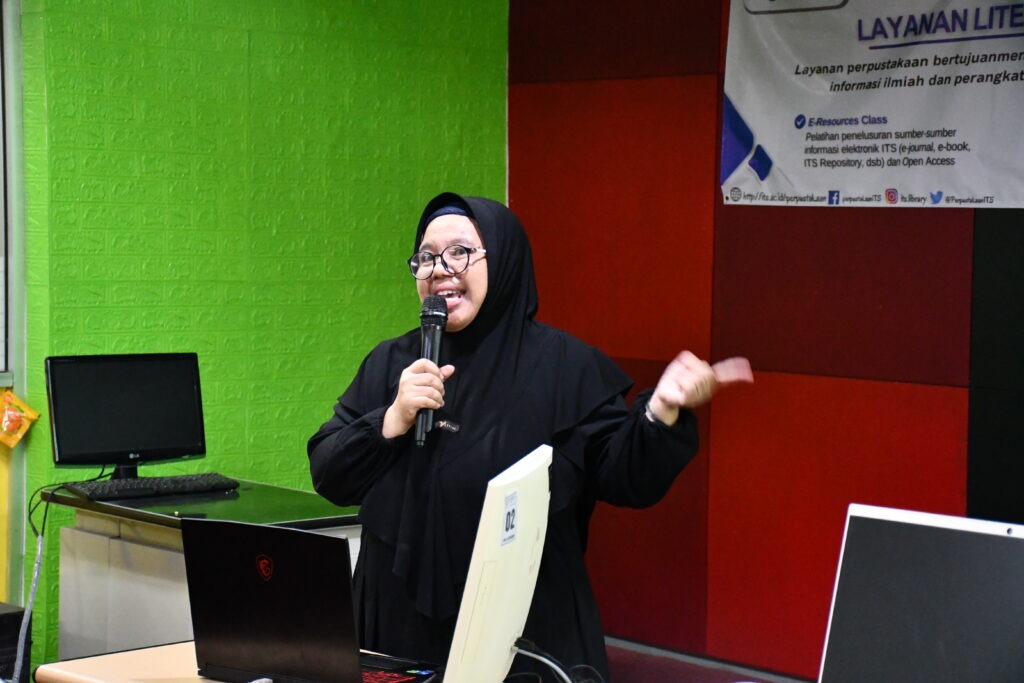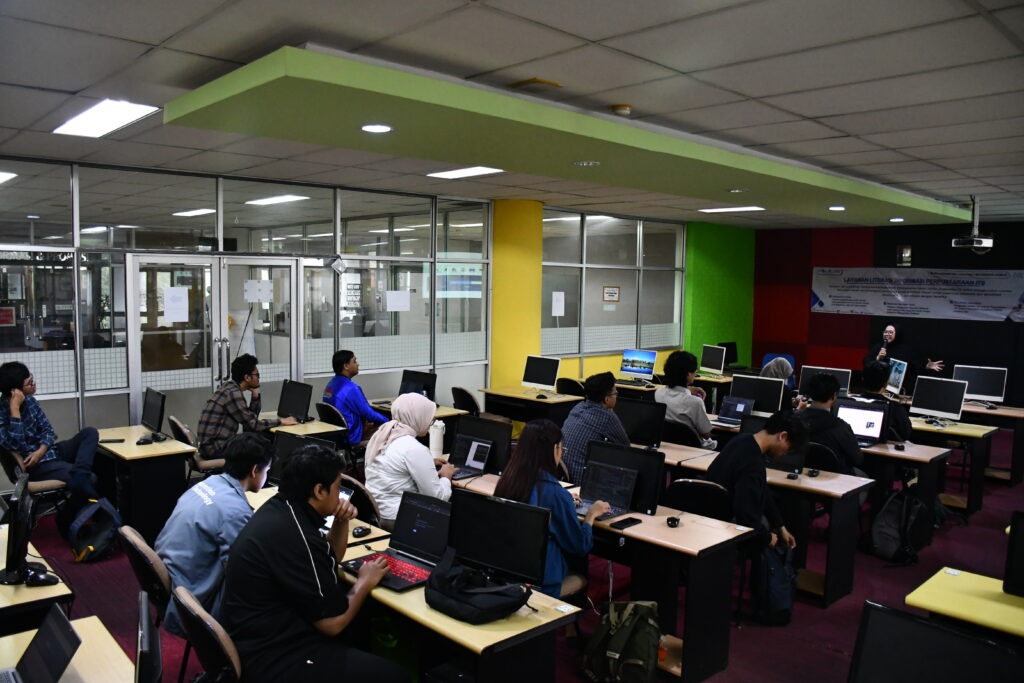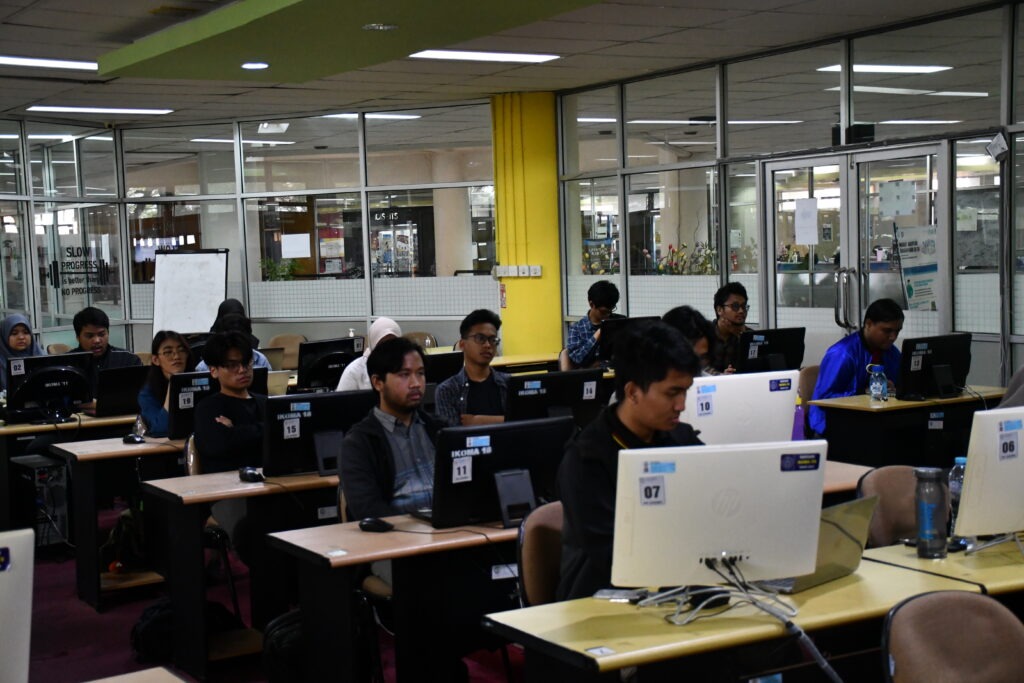The Use of AI in Scientific Paper Creation: Driving Innovation and Efficiency.
Activity
Sorry, no posts matched your criteria.
Along with the rapid development of technology, artificial intelligence (AI) is now starting to penetrate various fields, including in the creation of scientific papers. The use of AI in scientific research has opened up new possibilities, from faster data analysis to more effective compilation of literature. Lecture Material for Information Technology Lecturer Mrs. Hening Ciptaningtyas, workshop material on the Use of AI for scientific papers, this event was held at the ITS Library, 3rd Floor, Computer Lab.

This material was opened by a librarian staff named Eva Mursidah who is an AI expert in the field of Librarians., this event was attended by Information Technology students from the 2021 batch and the final semester batch, Mrs. Eva Mursidah discussed the use of AI in the creation of scientific papers. In writing scientific papers, researchers often have to process and summarize a lot of relevant literature. AI can help streamline this process through natural language processing (NLP).

NLP technology is able to extract important information from thousands of academic papers and compile it into a comprehensive summary. This allows researchers to focus more on developing hypotheses and designing experiments. In the peer-review process or assessment of scientific papers, AI can help verify data, check for plagiarism, and evaluate the accuracy of the methods used. For example, platforms like Grammarly or Turnitin that are powered by AI, help detect writing errors and potential ethical violations such as plagiarism.

The use of AI in scientific writing has brought about a major change in the way research is conducted. AI helps researchers to be more efficient in analyzing data, finding literature, and ensuring the quality of the scientific work produced. Although there are still challenges that need to be overcome, the role of AI in scientific research is expected to continue to grow and become an integral part of the academic ecosystem in the future.
Latest News
Sorry, no posts matched your criteria.





